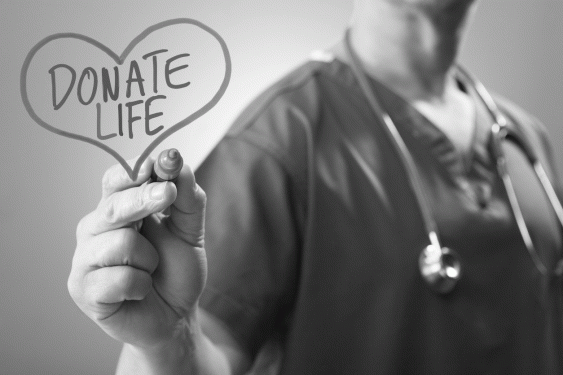Archives
Stay up-to-date and on top of your health with our e-Newsletter and receive updates on current treatments and vital health issues.
Donate Life

Last week was Donate Life Week. Donate Life Week is focused on raising awareness and encouraging Australians to consider registering to become an organ donor. Transplants give people a second chance at life. The reality is that any one of us or our loved ones may one day be in need of an urgent organ or tissue transplant. At any time, there are approximately 1,600 Australians waiting for their second chance; waiting for life-saving or life-transforming organs. By registering to donate, each of us have the power to save up to 10 lives and improve many more. Not all superheroes wear capes, some register as organ donors!
Unfortunately, only one in three Australians have joined the Australian Organ Donor Register, even though approximately 80% believe organ donation is important. A common misconception, causing many to not register as organ donors, is the false assumption that one’s general health and organ quality must be too poor to be of benefit to a recipient. This is often not the case, as donation of a variety of unaffected organs is often still possible, even in someone suffering with a chronic illness.
Organs are usually harvested from a terminally ill individual, in the hospital setting, where a decision to withdraw life support has been made. Only 1-2% of people die in these specific circumstances, allowing planned organ donation to be carried out with the consent of one’s family members or medical power of attorney. In most situations at least some organs or tissue can be harvested for donation.
Another common barrier to registering is uncertainty about whether one’s culture or faith supports organ and tissue donation. Almost all religions, including Christianity, Judaism, Islam, Buddhism and Hinduism, support donation and see it as an act of compassion and generosity.
So why is it important to officially register our decision to donate? It’s important because the register can be checked by doctors 24 hours a day, 7 days a week and when the opportunity for transplant harvesting occurs, this often needs to be acted upon urgently. Furthermore, the passing of a loved one is a difficult and emotional time that is made all the more complicated for family members when the dilemma of whether or not to offer their organs for donation arises. Knowing our loved one’s wishes removes the additional angst of having to make this heart wrenching decision on their behalf. The most important factor that assists a family in making this decision is the formalised registration of their loved one’s wishes. Nine in ten families agree to organ donation proceeding when the deceased is a registered organ donor. This number drops to just 52% where the deceased was not officially registered and the family had no prior knowledge. Sadly, this means that many of the 1,600 people on the Australian organ transplant waiting list won’t receive the life-saving organs they require.
Whilst in Australia, registering yourself as an organ donor is a very important step, the family of every potential donor will always be asked to confirm whether the donation can proceed. Therefore, just because you have registered yourself as an organ donor, does not automatically translate to your family providing consent. Completing the registration online to be an organ donor isn’t enough. Once you have made your decision to register, it is just as important to discuss this decision with your family and friends.
Organ and tissue donation saves lives. We encourage all our patients to register as an organ donor and discuss the decision with your families. If you have any questions or concerns about organ and tissue donation feel free to discuss these with your doctor. By registering for organ donation, you could one day save a life …or ten.
To register your donation decision, go to donatelife.gov.au